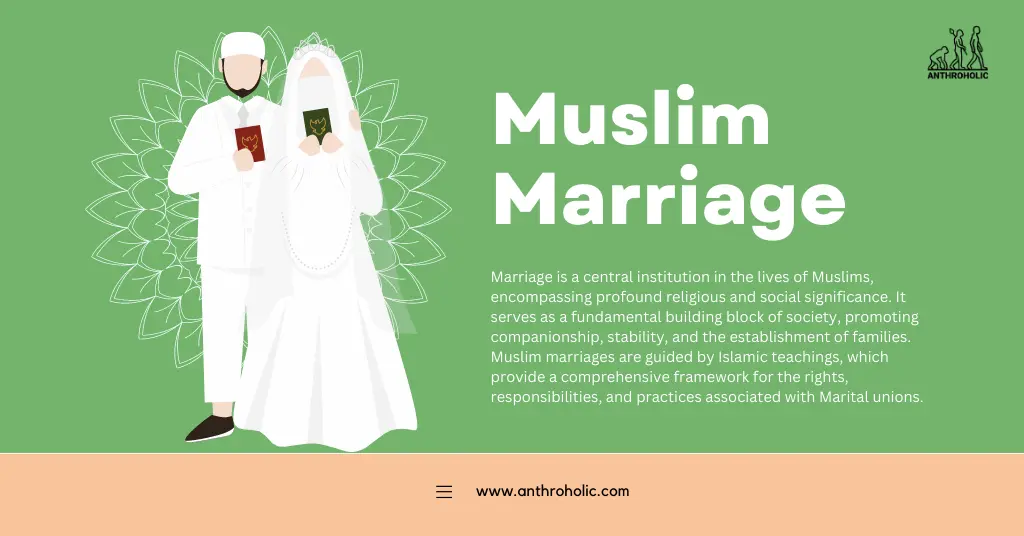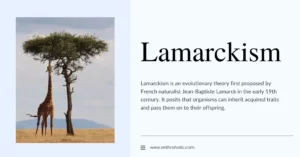AI Answer Evaluation Platform Live Now. Try Free Answer Evaluation Now
Muslim Marriage
Marriage is a central institution in the lives of Muslims, encompassing profound religious and social significance. It serves as a fundamental building block of society, promoting companionship, stability, and the establishment of families. Muslim marriages are guided by Islamic teachings, which provide a comprehensive framework for the rights, responsibilities, and practices associated with Marital unions.

Historical Context
The historical context of Muslim marriage is deeply intertwined with the development and spread of Islam. The early Islamic period saw the emergence of a new religious and social order, which had a profound impact on marriage practices within Muslim Communities.
In the early days of Islam, Marriage was often arranged, reflecting the prevailing cultural norms and social structures of the time. Marriages were typically negotiated between families, focusing on factors such as social status, Tribal affiliations, and economic considerations. The emphasis on family alliances and communal ties played a significant role in the formation of Marital unions.
As Islam spread across different regions and cultures, it encountered existing local customs and traditions related to Marriage. Over time, these customs became incorporated into Muslim marriage practices, resulting in a rich diversity of traditions and Rituals observed in different Muslim societies.
Islamic teachings, as found in the Quran and Hadith (sayings and actions of Prophet Muhammad), provided a framework for marriage practices and Principles. The Quran emphasises the importance of marriage as a means of finding tranquillity, love, and companionship. It encourages believers to enter into marriages based on mutual consent, respect, and shared values.
As Muslim societies evolved and interacted with diverse cultures and civilizations, they assimilated local customs into their marriage practices while adhering to the core principles of Islam. This led to variations in Marriage customs, rituals, and traditions across regions, reflecting the cultural diversity within the Muslim world.
Furthermore, Historical events and Socio-political changes have influenced Muslim marriage practices. The rise and fall of empires, colonisation, and globalisation have all left their mark on the evolution of Marriage customs and family dynamics within Muslim societies. Factors such as urbanisation, education, and economic transformations have also impacted marriage patterns and the roles of men and women in Marital relationships.
Understanding the Historical context of Muslim marriage is crucial to appreciate the Complexity and diversity of practices observed today. It highlights the dynamic nature of Muslim societies and the ongoing interplay between Islamic teachings, cultural traditions, and changing social Dynamics.
Islamic Teachings and Principles
Islamic teachings provide a strong foundation for Muslim marriages, shaping the principles and values that guide Marital relationships. The Quran, considered the holy book of Islam, and the Hadith, which consists of the sayings and actions of Prophet Muhammad (p.b.u.h), serve as Primary sources of guidance for Muslims regarding Marriage.
The Quran emphasises the importance of Marriage as a means of finding tranquillity and Companionship. It highlights the concept of love and mercy between spouses, emphasising the mutual support and care that should exist within the marital relationship. Quranic verses such as “And among His Signs is this, that He created for you mates from among yourselves, that ye may dwell in Tranquillity with them, and He has put love and Mercy between your (hearts): verily in that are Signs for those who Reflect” (Quran 30:21) underline the significance of love and Mercy as foundational elements of a successful and Harmonious marriage.
Islamic teachings also emphasise the concept of Mutual respect and equality within the marital relationship. The Quran emphasises the equal worth and dignity of men and women as creations of Allah, promoting the idea that Spouses are partners who should treat each other with fairness and respect. The Prophet Muhammad’s teachings further reinforce the importance of kindness, compassion, and consideration towards one’s spouse.
Furthermore, Islamic teachings emphasise the shared responsibilities and duties of spouses within the marriage. Both partners are encouraged to contribute to the well-being of the Family, not only financially but also emotionally and Spiritually. They are expected to support and care for each other, seek mutual consultation in decision-making, and create a nurturing and harmonious environment for their children.
Islamic teachings also provide guidelines for resolving conflicts within the Marital relationship. The Quran encourages peaceful dialogue, patience, and Forgiveness as means of resolving disputes and maintaining a healthy and balanced relationship.
It is important to note that while Islamic teachings provide the overarching principles and values for Muslim marriages, their interpretation and application may vary across different Cultural and regional Contexts. Cultural practices, Societal norms, and personal understandings of Islamic teachings can influence the way individuals approach and experience their marital Relationships.
By adhering to the teachings of Islam, Muslims seek to establish marriages based on love, compassion, mutual respect, and shared responsibilities. These principles provide a moral and Ethical framework that aims to foster strong and Harmonious marital relationships within the Muslim community.
Consent and Agency in Muslim Marriage
Consent and agency hold significant importance in Muslim marriage, reflecting the Islamic principles of individual Autonomy and free choice. Islam upholds the principle that both the bride and groom should enter into the marital contract willingly and without any form of coercion or pressure.
Consent forms the foundation of a valid Muslim marriage. Islamic teachings emphasise that marriage should be based on the voluntary agreement and mutual consent of both parties. This means that individuals have the right to freely choose their life Partners based on their own judgement and Preferences. Without genuine consent, a marriage is considered invalid in Islamic law.
Islamic teachings emphasise the importance of Informed Consent, ensuring that individuals fully understand the implications and responsibilities of entering into a Marriage contract. This involves providing individuals with the necessary information about their prospective spouse and allowing them the opportunity to make an informed Decision.
Furthermore, Islamic teachings discourage any form of coercion or pressure in the marriage process. The Quran states, “There is no compulsion in religion” (Quran 2:256), which is understood to extend to the realm of marriage. This principle ensures that individuals have the freedom to accept or reject a marriage proposal without facing undue influence or force.
The concept of Agency is closely intertwined with consent in Muslim marriage. Agency refers to the individual’s capacity to act and make Decisions based on their own free will. Islamic teachings emphasise the Agency of individuals in choosing their life partners and entering into a marriage contract. This recognition of agency ensures that individuals are active participants in the decision-making process and have the Autonomy to shape their own marital relationships.
It is important to note that while consent and agency are fundamental principles in Islamic marriage, Cultural practices and Societal expectations may sometimes influence the extent to which these principles are Upheld. In some cases, cultural traditions or family dynamics may put pressure on individuals to comply with certain Marriage arrangements. However, Islamic teachings stress the importance of Prioritising the free will and agency of individuals in the Marriage Process.
By emphasising consent and agency, Islam seeks to ensure that marriages are based on Mutual respect, understanding, and the genuine desire of both parties to enter into a lifelong Commitment. These principles empower individuals to make choices that align with their own values and aspirations, fostering relationships built on Trust, equality, and Shared goals.
Mahr: Gift and Financial Obligations
In Muslim Marriage, the mahr plays a significant role as a mandatory gift or dowry given by the groom to the bride. It symbolises the husband’s commitment, financial responsibility, and Recognition of the bride’s worth within the Marital contract. The mahr serves as a symbol of honour and respect for the wife and is considered a fundamental aspect of Muslim Marriage.
The mahr holds both Symbolic and practical importance. Symbolically, it represents the groom’s commitment to fulfilling his Responsibilities as a husband and provider. It signifies his recognition of the bride’s inherent value and the significance of her role within the Marital relationship.
Practically, the mahr provides the bride with financial security and serves as a means of Support. It offers her a tangible asset or financial resource that she can utilise as per her needs and Preferences. The mahr can be in the form of money, property, jewellery, or any other valuable asset agreed upon by the Couple.
The amount or nature of the mahr is determined through Mutual agreement between the bride and Groom. It can be stipulated at the time of the marriage contract or negotiated beforehand. The mahr is typically discussed and decided upon with the involvement of the Couple, their families, and sometimes religious or community leaders who offer guidance on ensuring a fair and Reasonable amount.
Islam emphasises the importance of fulfilling the financial obligations associated with the Mahr. The groom is expected to provide the agreed-upon mahr to the bride in a timely manner, demonstrating his commitment and ability to fulfil his responsibilities as a Husband. This financial obligation contributes to the overall stability and security of the marital Relationship, as it provides the wife with resources and assets that she can Utilise as Needed.
It is essential to note that the mahr belongs solely to the Bride, and she has the right to use it as she deems fit. It serves as her personal property and should not be controlled or taken away by anyone, including her Husband or Family members. The Mahr ensures that the wife has financial Autonomy and a sense of ownership within the Marriage.
The practice of the Mahr varies across different Muslim Cultures and regions. While some Communities adhere to traditional customs and norms, others adopt more modern and flexible Approaches. It is crucial to respect and honour the diverse interpretations and practices surrounding the Mahr within the broader context of Muslim Marriage.
Overall, the Mahr in Muslim marriage reflects the husband’s commitment, financial responsibility, and recognition of the bride’s worth. It symbolises honour, respect, and financial security for the wife, contributing to the establishment of a balanced and equitable Marital Relationship.
Marriage Contract (Nikahnama)
The marriage contract, also referred to as the Nikahnama, holds significant importance in Muslim Marriage. It is a legally binding agreement that formalises the union between the Bride and Groom. The Nikahnama outlines the rights and responsibilities of both spouses, establishes the terms of the marriage, and serves as a reference for resolving any Disputes that may arise during the marital Relationship.
The Nikahnama typically includes several key elements. Firstly, it specifies the Mahr, which is the mandatory gift or dowry given by the Groom to the bride as a symbol of his commitment and financial responsibility. The amount or nature is recorded in the Contract, and it becomes an obligation for the Groom to fulfil.
Additionally, the Nikahnama may include provisions related to Divorce. These provisions outline the conditions under which a divorce can occur, the rights of both parties in case of divorce, and the procedures to be followed. This helps establish a framework for addressing Marital dissolution if necessary.
Furthermore, the Nikahnama may include any additional Conditions agreed upon by the couple. These conditions can be Mutually decided based on the couple’s preferences and may include matters such as the wife’s right to work, Education, Custody of children, or any other specific arrangements important to the couple. The inclusion of such conditions ensures that both parties have a clear understanding of their rights and expectations within the Marriage.
The Nikahnama is typically signed by the Bride, Groom, witnesses, and the religious authority overseeing the Marriage ceremony. This collective signing validates the contract and signifies the consent and Commitment of all parties involved. The presence of witnesses, usually two male Muslim witnesses, serves as a safeguard to ensure the Authenticity and legality of the Contract.
The Nikahnama acts as a Reference document throughout the marriage, providing guidance and clarity on the Rights and responsibilities of both Spouses. It serves as a source of reference for resolving any conflicts or Misunderstandings that may arise during the marital journey.
It is important to note that the content and structure of the Nikahnama can vary based on Cultural and regional practices. Different communities may have specific customs and traditions surrounding the marriage contract. Additionally, legal requirements and regulations may also influence the format and contents of the Nikahnama in different Jurisdictions.
The Nikahnama represents an essential aspect of Muslim marriage, as it establishes the framework for the Rights, obligations, and provisions of the marital relationship. It promotes transparency, clarity, and fairness, ensuring that both Spouses have a shared understanding of their Commitments and expectations.
Role of Witnesses and Guardians
Muslim marriages require the presence of Witnesses to ensure the validity of the Contract. Usually, two male Muslim Witnesses are present during the marriage ceremony to testify to the legality and authenticity of the marriage. Additionally, the bride’s guardian, known as the Wali, plays a crucial role in protecting the bride’s interests and ensuring that the marriage contract is entered into with her consent.
Marriage Ceremony and Rituals
Muslim marriage ceremonies and Rituals vary across different regions and cultures. While the core focus is the recitation and signing of the marriage contract, additional customs and traditions are often incorporated. These may include the exchange of Vows, blessings from family members and religious Figures, and communal celebrations, such as Feasts and gatherings.
Gender Roles and Equality in Muslim Marriage
Islamic teachings emphasise the principles of Fairness, respect, and equality between spouses within the institution of marriage. While traditional gender roles may exist in certain Cultural contexts, Islam promotes the concept of mutual respect, cooperation, and shared Responsibilities within the marital relationship.
Islam emphasises the Equitable treatment and partnership between Husbands and wives. The Quran states, “And they (women) have rights similar to those (of men) over them in kindness” (Quran 2:228). This verse highlights the importance of kindness, fairness, and Reciprocity in marital relationships.
While traditional gender roles may have existed Historically, Islamic teachings encourage the active involvement of both husbands and wives in the well-being of the family. The responsibility for providing financial support traditionally falls upon the Husband, while the wife is often responsible for managing the household and nurturing the family. However, these roles are not fixed and can be negotiated based on individual Preferences and Circumstances.
Islam promotes shared Decision-making between spouses. The concept of “shura,” which refers to consultation and Mutual agreement, is emphasised in Islamic teachings. Husbands and wives are Encouraged to discuss and consult with each other in matters affecting the family, including financial decisions, child-rearing, and major life choices. This consultation fosters a sense of Equality and cooperation, ensuring that decisions are made collectively and taking into account the perspectives and concerns of both Spouses.
It is important to note that while Islamic teachings promote equality and partnership, the interpretation and practice of these principles can vary across different cultural and regional contexts. Societal norms, cultural traditions, and personal beliefs may influence the extent to which gender equality is realised within Muslim marriages.
Contemporary discussions within Islamic scholarship have also focused on Reinterpreting traditional teachings to foster greater gender equality. Scholars and activists have emphasised the importance of addressing gender biases, challenging harmful cultural practices, and Promoting women’s rights within the Framework of Islamic teachings.
In summary, while traditional Gender roles may exist in some societies, Islamic teachings emphasise the principles of fairness, respect, and equality within the marital relationship. Mutual respect, cooperation, shared decision-making, and emotional support are valued, allowing both Husbands and wives to contribute to the well-being of the family. The evolving discussions and interpretations within Islamic scholarship continue to shape and challenge gender roles within Muslim marriages, striving towards greater Gender equality and Empowerment.
Polygamy: Practices and Perspectives
Polygamy, the practice of having Multiple wives, is permitted in Islam with conditions of Equitable treatment. The Quran allows men to marry up to Four wives, but Monogamy is more common among Muslims today. Polygamy varies across Muslim Societies, influenced by cultural, Social, and historical factors. Economic considerations, family ties, and care for Widows and orphans may be factors in Polygamous marriages. However, motivations can differ, and not all Polygamous marriages adhere to Islamic principles. Challenges arise in balancing emotional, financial, and time commitments among Multiple spouses. Contemporary perspectives vary, with some advocating for Reevaluation within the context of Gender equality, while others emphasise Adherence to Islamic teachings. Legal frameworks in many Countries regulate polygamy to protect the rights of all Parties involved, with restrictions or Requirements for consent. In summary, Polygamy in Islam is allowed but not encouraged, with an emphasis on Equitable treatment, while monogamy is more prevalent and contemporary discussions Highlight the importance of fairness and Adherence to Islamic Principles.
Marital Rights and Responsibilities
Muslim marriage encompasses a range of rights and Responsibilities for both spouses, reflecting the principles and values upheld in Islamic teachings. These rights and Responsibilities form the foundation of a healthy and balanced marital relationship, fostering Harmony, mutual support, and Companionship.
Financial support is one of the fundamental Responsibilities in Muslim marriage. According to Islamic teachings, the husband has the obligation to provide for the material needs of his wife and family. This includes providing Housing, food, clothing, and other essential necessities. The wife, on the other hand, has the right to be supported financially by her Husband, ensuring her well-being and Security within the marriage.
Emotional care and support are Equally important in Muslim marriage. Both spouses have the responsibility to nurture and care for each other’s emotional well-being. This involves being attentive to each other’s feelings, Offering support during challenging times, and showing empathy and Understanding. Emotional intimacy and companionship are Emphasised, creating an environment of love, Respect, and emotional Connection.
Islam also stresses the importance of Maintaining a loving and respectful relationship between husband and wife. The Quran encourages spouses to treat each other with kindness, compassion, and respect. The Prophet Muhammad exemplified these qualities in his own Marital relationships, emphasising the importance of expressing love and appreciation towards one’s Spouse.
Additionally, sexual intimacy is recognized as a Significant aspect of Muslim marriage. Both husband and wife have the right to engage in a fulfilling and satisfying Sexual relationship within the bounds of Mutual consent and respect. Islam promotes the idea of intimacy as a means of Strengthening the bond between spouses and fostering Emotional and physical well-being.
It is essential to note that while specific rights and responsibilities are Outlined in Islamic teachings, their interpretation and practice can vary within different Cultural and regional contexts. The understanding and application of Marital rights and Responsibilities can be influenced by Societal norms, individual beliefs, and personal Experiences.
Marriage and Family Dynamics in Muslim Societies
Muslim marriage extends Beyond the couple and encompasses broader family dynamics. In many Muslim societies, strong Familial ties and the involvement of extended family members contribute to the support system and social fabric surrounding marriages. Family members often play a significant role in providing guidance, assistance, and emotional support to the Married couple.
Cultural Variations in Muslim Marriage Practices
Muslim marriage practices exhibit significant Cultural variations influenced by regional customs, traditions, and societal norms. Different regions may have distinct Rituals, attire, and ceremonies associated with marriage. Cultural factors can shape the Expectations, roles, and dynamics within Muslim marriages, creating diverse Experiences and expressions of marital unions.
Contemporary Issues and Challenges
Muslim marriage faces various contemporary challenges influenced by Social, cultural, and legal factors. Issues such as Gender equality, women’s rights, divorce, and the evolving role of Religion in modern societies contribute to ongoing debates and Discussions. Balancing traditional values with Contemporary expectations presents challenges for individuals and Communities navigating the complexities of Muslim marriages.
Conclusion
Muslim marriage is a complex institution that encompasses a wide range of Historical, cultural, and social dimensions. This article has provided an Extensive exploration of Muslim marriage, examining its Historical context, Islamic principles, consent and Agency, financial obligations, marriage contracts, roles of witnesses and guardians, marriage ceremonies and Rituals, gender roles and Equality, polygamy, marital rights and Responsibilities, marriage and family dynamics, cultural variations, and Contemporary issues and challenges.
Through this comprehensive Examination, it becomes evident that Muslim marriage is a dynamic and multifaceted institution, shaped by Various factors including religious teachings, cultural practices, and Societal norms. It is a s\Sacred union that emphasises love, compassion, mutual respect, and partnership between Spouses.
While Islamic teachings provide a framework for Muslim marriage, cultural variations and evolving Societal dynamics influence the practice and Interpretation of these teachings. The rights and responsibilities of Spouses, the role of consent and Agency, and the perceptions of Gender roles and Equality can vary across different Muslim Communities and Regions.
Contemporary challenges such as Balancing traditional values with modern expectations, addressing issues of Gender equality, navigating cultural diversity, and adapting to changing social norms continue to shape Muslim marriage in the present day.
By understanding and appreciating the Complexities and significance of Muslim marriage, we gain insight into the diverse Experiences and practices within Muslim Communities. It is essential to approach the topic with Cultural sensitivity, respect for individual choices, and a recognition of the diverse interpretations and applications of Islamic Teachings.
Overall, Muslim Marriage holds immense importance in the lives of individuals and Communities, serving as a foundation for familial bonds, Social cohesion, and personal growth. Through Continued dialogue, understanding, and reflection, Muslim communities can navigate the challenges and opportunities that arise within the context of Marriage, fostering relationships built on Love, mutual respect, and shared Values.
Reference List
- Al-Ali, N., & Koser, K. (Eds.). (2002). New approaches to migration? Transnational communities and the transformation of home. Routledge.
- Haddad, Y. Y. (2007). Contemporary Islamic law in the Levant: Women’s rights and personal status law among the Arab states of the Gulf. Syracuse University Press.
- Ibrahim, Z. A. (2008). Women, Islam, and the state. University of Pennsylvania Press.
- Kandiyoti, D. (Ed.). (1991). Women, Islam and the state. Temple University Press.
- Khan, S. (2013). A critical analysis of polygamy in Islamic law. Journal of Law and Religion, 28(3), 451-472.
- Mernissi, F. (1991). Women and Islam: An historical and theological enquiry. Blackwell Publishers.
- Nelson, K. (2005). The politics of infertility in Jordan: An ethnography of gender, kinship, and medical practice. University of California Press.
- Ridge, N. (2011). Marriage as an economic partnership: Islamic marriage and law. Feminist Legal Studies, 19(2), 105-122.
- Saeed, A. (2004). Islamic thought: An introduction. Routledge.
- Siddiqui, M. R. (1993). The status of women in Islam: A contemporary perspective. Oxford University Press.
- Haeri, S. (1989). Law of desire: Temporary marriage in Shi’i Iran. Syracuse University Press.
- Sewell, W. H. (1993). Structure and mobility: The men and women of Marseille, 1820-1870. Cambridge University Press.
- Abu-Lughod, L. (2000). Veiled sentiments: Honor and poetry in a Bedouin society. University of California Press.
- Ahmed, L. (1992). Women and gender in Islam: Historical roots of a modern debate. Yale University Press.




